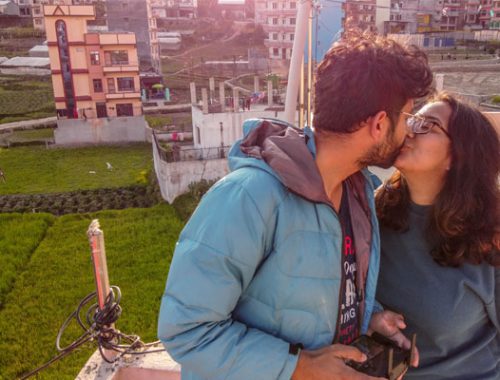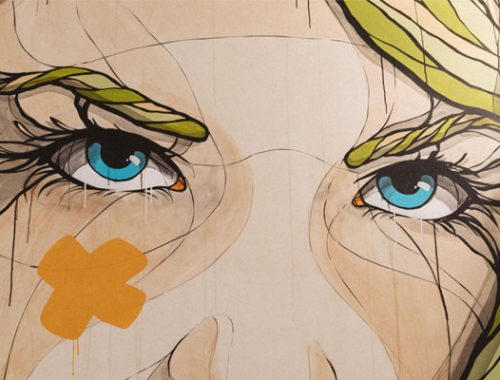
BEFORE YOU APPLY TO AUSTRALIA
Keep in mind that the visa system requires a bit of research to be done from you as a student. So here are the things you need to keep in mind before applying to Australia.
1. Academics
If you are applying for Diploma, anything below 55% is a high risk. If you are applying for Bachelors, anything below 60% is a high risk. If you are applying for Masters, anything below 55% is a high risk. Please kindly take this as a Rule of Thumb while applying. It doesn’t mean getting less won’t get you your visa but think, why would they approve your visa to study in a reputed University/College with that score. Higher your academic scores, better chances of your visa.
2. English
If you are applying for any study above 3 months, you need to appear in English Tests. You can go through IELTS, PTE, TOEFL, CAE and many other tests (depending upon the requirements). But if you have a low score, how will you convince the person giving your visa that you want to study your course in English in an English speaking country with low scores in your ENGLISH? How genuine does it sound? Rather than spending money on doing English Classes in Australia, spend a few thousand here, take proper classes, give multiple exams and get your scores high! Higher your English scores, better chances of your visa.
3. Gaps
If you are coming from 10+2 background and have more than 1.5/2 years gap, it isn’t considered a good thing. You can show your genuine working experience but it isn’t valued much because your qualification is just 10+2 which is eligible for a very low level job. This doesn’t help prove your case as genuine. Similarly, gaps between SLC and 10+2 aren’t considered good at all. Most of the universities won’t even accept you with a gap of 1 year. Having said that, a work experience after your PCL degree is a good thing. It all depends on what you’ve studied and what you want to study. Less gap means better chances of your visa.
4. Financials
You need to understand what financials are required and how much. Normally, Financials include Income( around AUD 20,000 per year ) and Loan/ Savings [AUD 21830 (Living expense for a year)+ AUD 2000 (Travel expense) + Tuition fees]. If you have savings (not statement) of the desired amount for upto 3 months, you can apply. Or else, you can apply for an Education Loan from Listed Banks (normally Nabil and Nepal SBI Bank). Your income can be from multiple sponsors and can be from Salary, Pension, Rent, Lease, Business income, etc. Good financials means better chances of your visa.
5. Marital History
If you have been married or are planning on getting married, it’s always advisable to understand if it will affect your visa procedure. Normally Universities and colleges seek for students who have been married for 1 year or more. This requires marriage photographs, videos and marriage registration certificate to prove. Being married won’t stop you from getting your visa. Even if you are married, you can apply to go alone or to take your spouse with you or to go alone right now and call your spouse after some time( a semester ideally). If the Marital History is clear, it will increase your chances of getting a visa.
6. Interview
You should always be prepared for an interview. It is the High Commission’s way to find out if what ever you wrote on your SOP or the documents you showed to them are true or not. You should be prepared with the basic set of questions like Why Australia? Why Sydney/Melbourne? Why selected University? Etc. Do your research. Don’t expect someone else to spoon feed you all of this. If you do your research, you’ll be able to write your SOP without any help as well. Some Colleges and Universities require you to sit in an interview for offer letter/for GTE approval/for CoE. So be prepared. Also sometimes, your interview outcome will decide if you will receive your visa.
7. Statement of Purpose (SOP)
You should have an original SOP written by yourself. Don’t ask for samples, ask for guidelines. Guidelines can help you make your own SOP. Copying someone’s SOP doesn’t give you the effective points you need. Also later when you go to Australia, you’ll realise that PLAGIARISM is a very big deal and you can also get expelled from your college/university for copying something off of others. Your SOP is the one document that shows what you’ve studied, what you want to study, what you want to be, your family circumstances, everything in one place. It can be long or it can be short, as long as it contains the information. Genuine students spend alot of time re-writing their SOP to make sure their visas are approved. SOPs , these days, determine the result of your visas.
Now these are just a few points before you get started. Do make sure you get the proper information for everything you are doing. It’s okay to be curious and inquisitive. Hope this helps you guys. I have been working in this industry for over 10 years now and these are just some pointers to help you guys out. Reach out to me if you need any help!
SuritBhattarai
Hi! I like writing about all sorts of stuff and sharing them. I am a full time Study Abroad Consultant by job and I also do a few public speaking events. I travel for my work and I absolutely love doing so. Subscribe so you don't miss out on my posts :) Cheers! Surit.





4 Comments
erotik izle
C’est en réalité une information agréable et utile. Je suis convaincu que vous venez de partager ces informations utiles avec nous. S’il vous plaît, gardez-nous au courant de ceci. Merci d’avoir partagé. Milicent Briano Giefer
erotik izle
Ich mag diesen Blog, es ist ein Meister des Friedens! Ich bin froh, dass ich das bei Google beobachtet habe. Lenee Codi Ernesto
Karl Monagas
i love this excellent post
SuritBhattarai
Thank you.